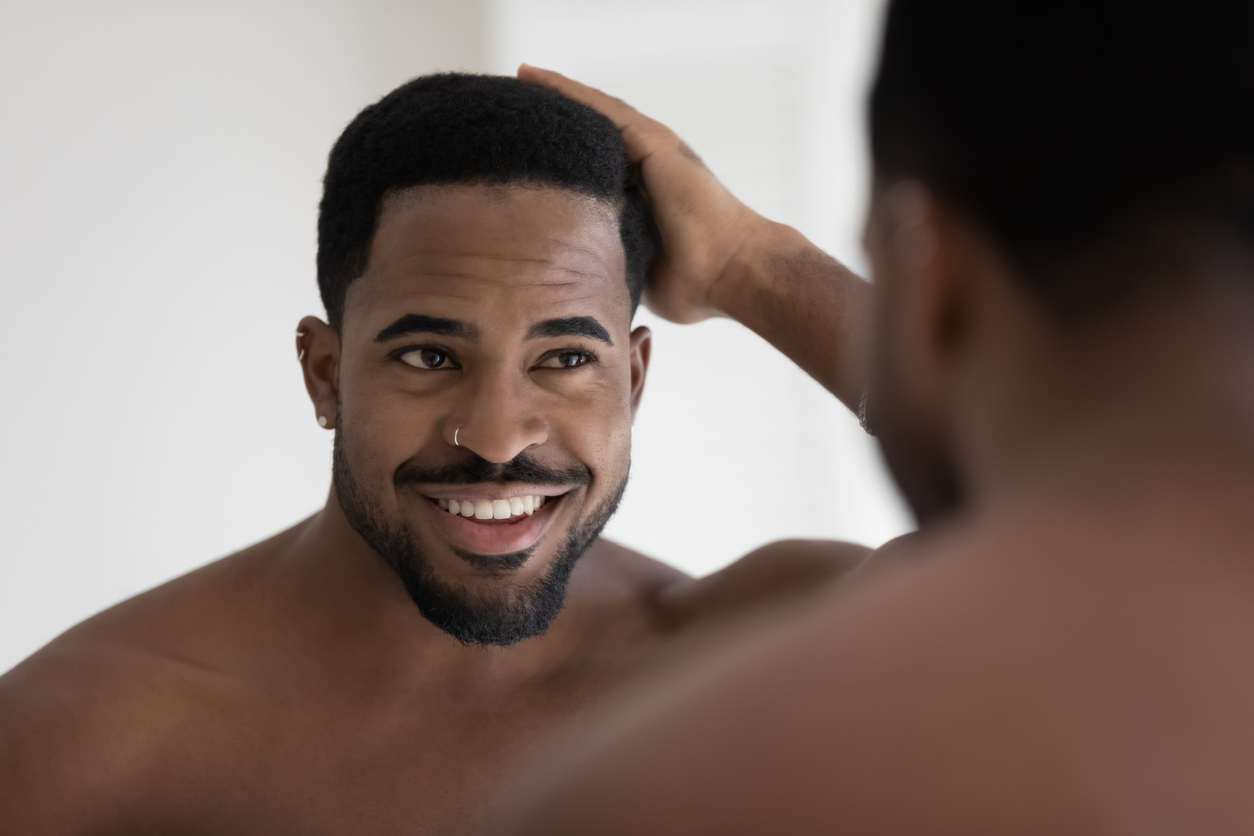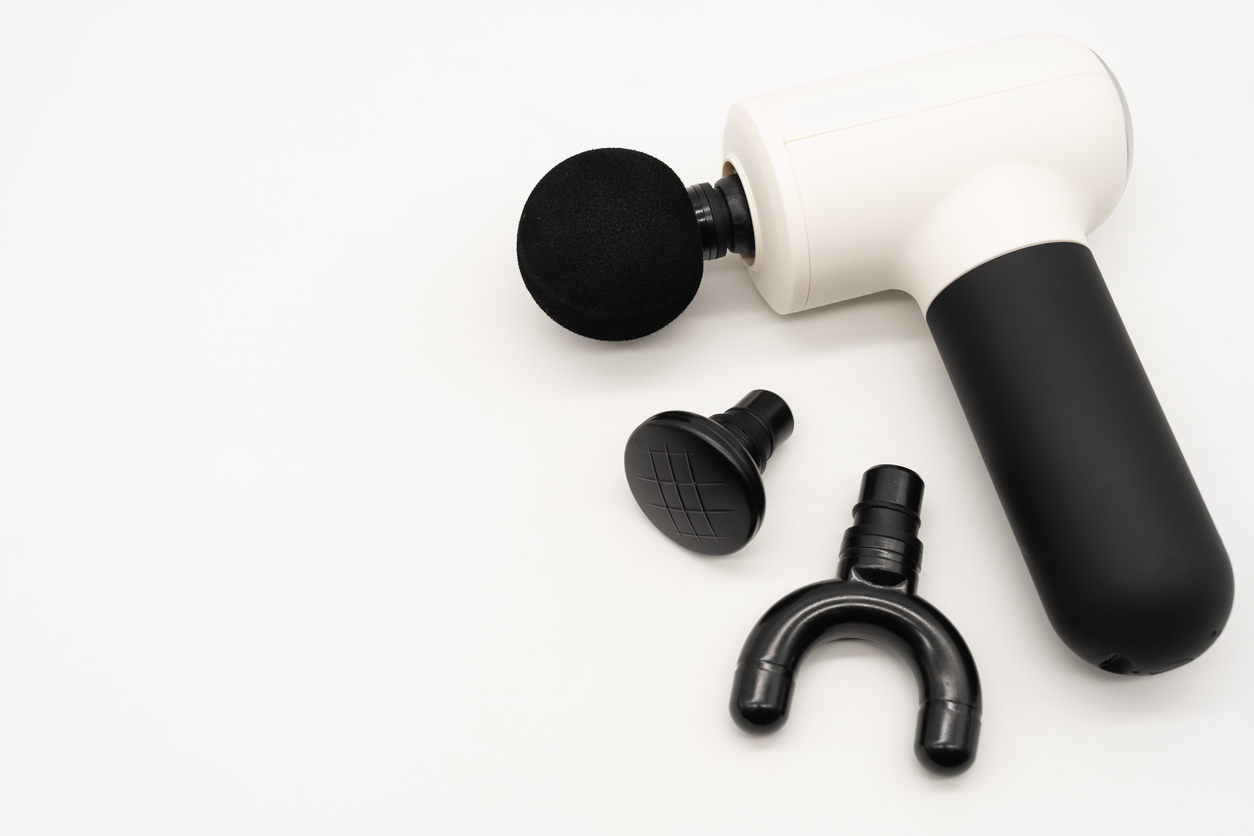Effective Products and Treatments for Hair Loss Prevention in Nigerian Men
Effective Products and Treatments for Hair Loss Prevention in Nigerian Men
Are you tired of watching your hairline recede? Are you looking for effective products and treatments to prevent hair loss in Nigerian men? Look no further! In this blog post, we will explore the best solutions available to help you maintain a full head of hair and boost your confidence. Say goodbye to thinning hair and hello to a healthier, more vibrant mane with these game-changing tips!
Introduction: The prevalence of hair loss in Nigerian men
Introduction: The prevalence of hair loss in Nigerian men
Hair loss, also known as alopecia, is a common condition that affects millions of people worldwide. While it can affect both men and women, studies have shown that men are more likely to experience hair loss than women. In particular, Nigerian men have been reported to have a higher incidence of hair loss compared to their female counterparts.
According to research conducted by the World Health Organization (WHO), about 50% of Nigerian men suffer from some form of hair loss by the age of 50. This is significantly higher than the global average of around 35%. Furthermore, another study found that over 60% of Nigerian men between the ages of 25-39 experience some degree of male pattern baldness.
The causes of hair loss in Nigerian men can vary and may include genetics, hormonal imbalances, diet, lifestyle factors and certain medical conditions. However, cultural norms and societal standards also play a significant role in the high prevalence of hair loss among Nigerian men.
In many African cultures including Nigeria, having a full head of healthy-looking hair is often seen as a symbol of masculinity and attractiveness. Therefore, when Nigerian men start experiencing signs of hair loss such as receding hairlines or thinning crowns, it can significantly impact their self-esteem and confidence.
Additionally, traditional grooming practices such as tight braiding or weaving hairstyles can also contribute to hair damage and eventual hair loss. This is because these styles put excessive tension on the scalp leading to traction alopecia – a type of gradual but irreversible hair loss due to constant pulling on the roots.
Moreover, environmental factors like humidity and pollution can also take a toll on the health and appearance of one’s mane. The hot climate in Nigeria coupled with air pollution from traffic congestion and industrial emissions can cause scalp irritation and inflammation which may contribute to premature shedding or breakage.
There are various factors that contribute to the high prevalence of hair loss among Nigerian men. It is a condition that not only affects physical appearance but also has a significant impact on mental and emotional well-being. In the following sections, we will discuss effective products and treatments that can help prevent hair loss in Nigerian men and promote healthy hair growth.
Understanding the Causes of Hair Loss: Genetic, environmental, and lifestyle factors
Hair loss is a common concern for many individuals, especially among men in Nigeria. While it can be distressing and affect self-confidence, understanding the underlying causes can help in finding effective solutions. In this section, we will explore the different factors that contribute to hair loss, including genetic, environmental, and lifestyle factors.
Genetic factors play a significant role in determining an individual’s susceptibility to hair loss. Male pattern baldness, also known as androgenetic alopecia, is the most common type of hair loss in men. It is believed to be inherited from both parents and is caused by the sensitivity of hair follicles to dihydrotestosterone (DHT), a hormone derived from testosterone. When DHT binds to these sensitive follicles, it shrinks them over time, leading to shorter and finer hair until they eventually stop producing new hairs.
Environmental factors such as pollution and exposure to harsh chemicals can also contribute to hair loss. In cities like Lagos where air pollution levels are high due to heavy traffic and industrial activities, these pollutants can build up on the scalp and clog pores. This prevents nutrients from reaching the hair follicles, weakening them over time. Excessive use of chemical-laden hair products such as dyes or relaxers can also damage the scalp and lead to hair fall.
Lifestyle choices can also impact an individual’s risk of experiencing hair loss. Poor nutrition has been linked with weak and thinning hair as essential vitamins such as biotin and iron are vital for healthy growth. Smoking has been shown to cause inflammation in the body which can affect blood flow to the scalp resulting in weakened follicles. Stress is another significant factor that contributes to temporary or prolonged periods of shedding.
Furthermore, certain medical conditions or medications may cause or exacerbate hair loss in Nigerian men. Conditions like thyroid disorders or lupus can disrupt normal hormone levels leading to excessive shedding while certain medications used for chemotherapy or blood thinning can also cause hair loss as a side effect.
Understanding the causes of hair loss in Nigerian men involves considering genetic predisposition, environmental factors, lifestyle choices, and underlying medical conditions. By identifying the root cause of hair loss, individuals can make informed decisions when selecting effective products and treatments for prevention. In the next section, we will explore some of these options in detail.
Effective Products for Hair Loss Prevention: Topical treatments, supplements, and medications
Hair loss is a common concern among Nigerian men, and finding effective products and treatments for prevention can be overwhelming. Fortunately, there are various options available in the market that have shown promising results. In this section, we will discuss the top three categories of hair loss prevention products: topical treatments, supplements, and medications.
Topical treatments are products that are directly applied to the scalp to stimulate hair growth and prevent further hair loss. One of the most popular topical treatments for hair loss is minoxidil. This medication works by increasing blood flow to the scalp, which nourishes the hair follicles and promotes growth. It is available over-the-counter in different strengths ranging from 2% to 5%. Studies have shown that regular use of minoxidil can lead to significant improvement in hair density and thickness.
Another effective topical treatment is finasteride. Unlike minoxidil, finasteride requires a prescription as it is a medication used for treating male pattern baldness. It works by blocking the conversion of testosterone into dihydrotestosterone (DHT), a hormone that shrinks hair follicles and leads to hair loss. Finasteride has been proven to be highly effective in preventing further hair loss and promoting new growth.
Supplements are another popular option for preventing hair loss in Nigerian men. These are oral or topical products that contain vitamins, minerals, herbs, or other nutrients believed to promote healthy hair growth. Biotin, also known as vitamin H or B7, is one of the most commonly used supplements for hair health. It helps strengthen the protein structure of the hair shafts and improve overall scalp health.
Other supplements with potential benefits for preventing hair loss include saw palmetto extract, iron supplements (for those with iron deficiency anemia), omega-3 fatty acids (found in fish oil), and vitamin D3 supplements (for those with low levels of vitamin D). However, it is essential to consult with a healthcare professional before starting any new supplements, as they may interact with other medications or have adverse effects.
Some medications can also be used for preventing hair loss in Nigerian men. One such medication is dutasteride, which works similarly to finasteride by blocking the production of DHT. However, it is a much more potent drug and requires a prescription from a doctor. It is generally recommended for those who do not see satisfactory results with finasteride.
There are various effective products and treatments available for preventing hair loss in Nigerian men. Topical treatments like minoxidil and finasteride have shown significant results in promoting hair growth and preventing further loss. Supplements containing biotin and other essential nutrients can also aid in maintaining healthy hair. And for those who require stronger interventions, medications like dutasteride may be suitable options. Consulting with a healthcare professional can help determine the best course of action based on individual needs and concerns.
Natural Remedies for Hair Loss Prevention: Herbs, oils, and DIY treatments
Natural remedies have been used for centuries to promote hair growth and prevent hair loss. These remedies often involve herbs, oils, and DIY treatments that are easily accessible and affordable. In this section, we will discuss some of the most effective natural remedies for hair loss prevention in Nigerian men.
1. Herbs:
Herbs such as aloe vera, rosemary, and sage have been traditionally used to improve hair health and promote growth. Aloe vera has anti-inflammatory properties that can soothe an irritated scalp and promote healthy hair follicles. Rosemary contains antioxidants that help stimulate blood flow to the scalp, promoting hair growth. Sage is known for its ability to balance hormones which can play a role in preventing hair loss.
To use these herbs for hair loss prevention, you can create a homemade herbal rinse by steeping dried herbs in hot water and using it as a final rinse after shampooing your hair. You can also mix these herbs with carrier oils like coconut or olive oil to make a nourishing scalp massage oil.
2. Essential Oils:
Essential oils are highly concentrated plant extracts that contain powerful properties beneficial for promoting hair growth and preventing further loss. Some essential oils commonly used for this purpose include lavender, peppermint, cedarwood, and tea tree oil.
Lavender oil has been found to increase the number of hair follicles in animals studies while peppermint oil stimulates blood flow to the scalp resulting in improved circulation. Cedarwood oil has shown promise in treating alopecia areata (an autoimmune condition causing patchy baldness). Tea tree oil has antimicrobial properties that can keep the scalp clean from fungal or bacterial infections which may contribute to hair loss.
When using essential oils for hair loss prevention, it’s important to dilute them with a carrier oil before applying them directly on your scalp or adding them into your shampoo/conditioner.
3. DIY Treatments:
There are several easy DIY treatments you can make at home using ingredients commonly found in your kitchen. These treatments are not only natural but also cost-effective.
One popular DIY treatment for hair loss is the onion juice treatment. Onions contain sulfur which helps improve blood flow to the scalp and promote hair growth. To use this treatment, blend an onion and extract its juice, apply it to your scalp and leave it on for 15-20 minutes before washing it off with a mild shampoo.
Another effective DIY treatment is the egg white and olive oil mask. Egg whites are rich in protein which can help strengthen hair while olive oil provides moisture to dry, brittle strands. Mix one egg white with two tablespoons of olive oil, apply it to your hair and scalp, leave it on for 30 minutes then rinse thoroughly.
Incorporating these natural remedies into your hair care routine can significantly contribute towards preventing hair loss in Nigerian men. However, it’s important to note that these remedies may not work for everyone as the root cause of hair loss may differ from person to person. If you are experiencing excessive or sudden hair loss
Lifestyle Changes for Hair Loss Prevention: Nutrition, stress management, and scalp care
While there are many effective products and treatments available for hair loss prevention, making certain lifestyle changes can also greatly contribute to maintaining a healthy head of hair. Nutrition, stress management, and scalp care are all important factors in preventing hair loss and promoting hair growth.
Nutrition plays a vital role in the health of our hair. Our hair follicles require a variety of vitamins and minerals to function properly and produce strong, healthy strands. Adequate consumption of protein, iron, zinc, and biotin is essential for promoting hair growth. Foods such as lean meats, eggs, spinach, nuts and seeds all contain these essential nutrients. Additionally, incorporating omega-3 fatty acids into your diet can help improve scalp health and stimulate hair growth. These can be found in foods like salmon, avocados, and olive oil.
Stress is another major contributing factor to hair loss in men. High levels of stress can disrupt the natural cycle of hair growth leading to increased shedding or even balding. Finding ways to manage stress through relaxation techniques like meditation or yoga can help reduce cortisol levels in the body which will ultimately benefit your overall health as well as your scalp.
In addition to nutrition and stress management, proper scalp care is crucial for preventing hair loss. The skin on our heads requires similar attention as the skin on our faces – it needs exfoliation and moisture to stay healthy. Regularly massaging the scalp with natural oils such as coconut or jojoba oil can promote circulation which helps deliver nutrients to the follicles while also removing built-up dead skin cells that may clog pores and hinder new growth.
Another important aspect of scalp care is keeping it clean without overwashing or using harsh chemicals that strip away natural oils from the skin. Using a mild shampoo specifically designed for sensitive scalps or opting for sulfate-free products can help maintain a healthy balance of oils while still cleansing effectively.
Making these simple lifestyle changes may not only prevent hair loss, but also improve the overall health and appearance of your hair. By nourishing your body with essential nutrients, managing stress levels, and caring for your scalp properly, you can take proactive steps towards maintaining a full head of healthy hair.
Cultural Considerations: Addressing societal pressures and stereotypes surrounding hair loss
Cultural considerations play a significant role in how hair loss is perceived and addressed in Nigerian society. Hair has always been an important aspect of African culture, representing beauty, identity, and cultural heritage. However, with the rise of societal pressures and stereotypes surrounding hair loss, men in Nigeria often face challenges when it comes to seeking effective solutions for their hair loss.
One of the biggest cultural pressures that Nigerian men face is the idea that a full head of hair is a sign of youth and vitality. This belief can lead to feelings of insecurity and shame for those experiencing hair loss as they may be seen as less attractive or masculine. As a result, many men may feel pressure to hide or cover up their thinning hair instead of seeking treatment.
In addition to societal pressures, there are also harmful stereotypes surrounding hair loss in Nigerian culture. The most common stereotype is that balding is solely due to aging or poor health practices such as not taking care of one’s scalp or diet. This misconception can create shame and stigma around hair loss, making it difficult for men to openly discuss their struggles with others.
Furthermore, traditional gender roles in Nigerian society often place more importance on women’s physical appearance than on men’s. This can lead to a lack of awareness and understanding when it comes to male-specific issues like hair loss. As a result, many men may struggle silently without receiving the necessary support or resources.
Addressing these cultural considerations surrounding hair loss is crucial in effectively preventing it in Nigerian men. It requires breaking down stigmas and educating both individuals and communities about the causes and treatments available for this condition.
It is essential for Nigerians to understand that genetics plays a significant role in hair loss – it affects both males and females equally. Additionally, factors such as stress levels, hormonal changes, diet choices, underlying medical conditions like alopecia areata also contribute significantly towards losing one’s crowning glory.
Through open conversations about these factors, men can feel more comfortable seeking treatment and support. It is also crucial for the media to showcase a diverse range of representations of men’s hair, including those with thinning hair or baldness. This will help combat harmful stereotypes and promote a healthier attitude towards hair loss.
Cultural considerations must be addressed in addressing societal pressures and stereotypes surrounding hair loss in Nigerian men. By promoting awareness, education, and breaking down stigmas, we can create a more supportive environment for men to seek effective solutions for their hair loss and maintain healthy self-esteem.
Case Studies:
Case Studies:
In order to truly understand the effectiveness of different products and treatments for hair loss prevention in Nigerian men, it is important to take a closer look at some real-life case studies. These case studies provide valuable insights into the experiences and results of individuals who have tried various methods to combat hair loss.
Case Study 1: Peter’s Story
Peter, a 35-year-old Nigerian man, had been experiencing gradual hair thinning for the past few years. Concerned about his receding hairline, he decided to try out a popular over-the-counter hair growth supplement. However, after several months of use, he did not notice any significant improvement in his hair density or thickness.
Feeling frustrated and desperate for a solution, Peter consulted with a dermatologist who recommended a combination therapy approach. This included using minoxidil topical solution twice daily and taking oral supplements containing essential vitamins and minerals for healthy hair growth.
After just three months of following this treatment plan diligently, Peter noticed remarkable improvements in his hair density and overall scalp health. He continued with the regimen as advised by his dermatologist and was able to maintain his results long-term.
Case Study 2: Tunde’s Experience
Tunde, a 28-year-old Nigerian man, began experiencing rapid hair loss due to male pattern baldness. Despite trying various shampoos and oils marketed for promoting hair growth, he did not see any positive changes in his condition.
Upon recommendation from a friend, Tunde decided to undergo platelet-rich plasma (PRP) therapy – an innovative treatment that involves injecting platelet-rich plasma from one’s own blood into the scalp to stimulate new hair growth.
After four sessions of PRP therapy spread out over six months, Tunde saw noticeable improvements in his once-thinning areas of scalp. Not only did he experience new hair growth but also thicker and healthier-looking strands.
Conclusion:
These two case studies highlight the importance of seeking professional advice and personalized treatment plans for effective hair loss prevention in Nigerian men. While some products may work for certain individuals, it is essential to consult with a dermatologist or trichologist to determine the underlying cause of hair loss and find the most suitable solution.
Additionally, it is crucial to be patient and consistent with any chosen treatment plan, as results may take time to show. Every individual’s experience with hair loss is unique, and what works for one person may not necessarily work for another. Therefore, it is important not to compare oneself with others but rather focus on finding the most effective solution for personal needs and concerns.








Comments are closed.